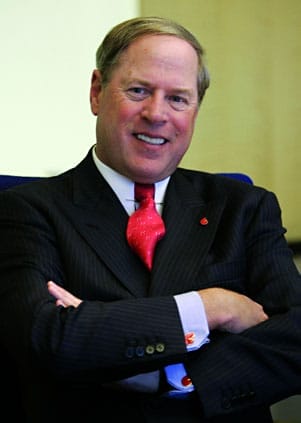 Insight and innovation often come from juxtaposition of two seemingly dissimilar fields. Ask Commerce Bank President/CEO Vernon Hill.
Insight and innovation often come from juxtaposition of two seemingly dissimilar fields. Ask Commerce Bank President/CEO Vernon Hill.
Also a successful owner of a string of Burger Kings, Hill decided that banking could be just like selling hamburgers, and that bankers seemed to be worried more about counting bills and coins than serving customers. For his insights, two Fast Company writers called him one of the “most original minds in business” in their 2006 book, Mavericks at Work: Beyond Business as Usual.
Bankers used to keeping bankers’ hours initially dismissed Hill, but by the 1990s, lots of them were running to emulate Hill’s consumer-friendly approach to banking. From his Cherry Hill, NJ, base, Hill slowly spread Commerce Bank in the Philadelphia area before breaking into the New York, Washington, and Florida markets. His approach was simple, he said: Figure out what people wanted in a bank. So Hill emphasized having more tellers and customer service employees and kept his stores—he preferred that name to “branches”—open into the evening, all day Saturday, and at least a few hours on Sundays.
When lines formed, managers would hop up and open another window. Hill took away the glass from those teller stations, believing it to be an intimidation to customers. There was always a cache of pens for customers to use and take away. Kids got lollipops and dogs coming through the drive in windows got biscuits. Free coin-counting machines were de rigueur at Commerce branches. Commerce charged no fees at its automatic teller machines and often reimbursed customers for other banks’ ATM charges.
When charges of political influence threatened its image, Hill discontinued Commerce’s political action committees and got out of the government bond business. Hill’s motto for Commerce was “America’s most convenient bank” and by 2006, it had grown to 375 stores, with the intention of having more than 1,000 within the next decade.


























